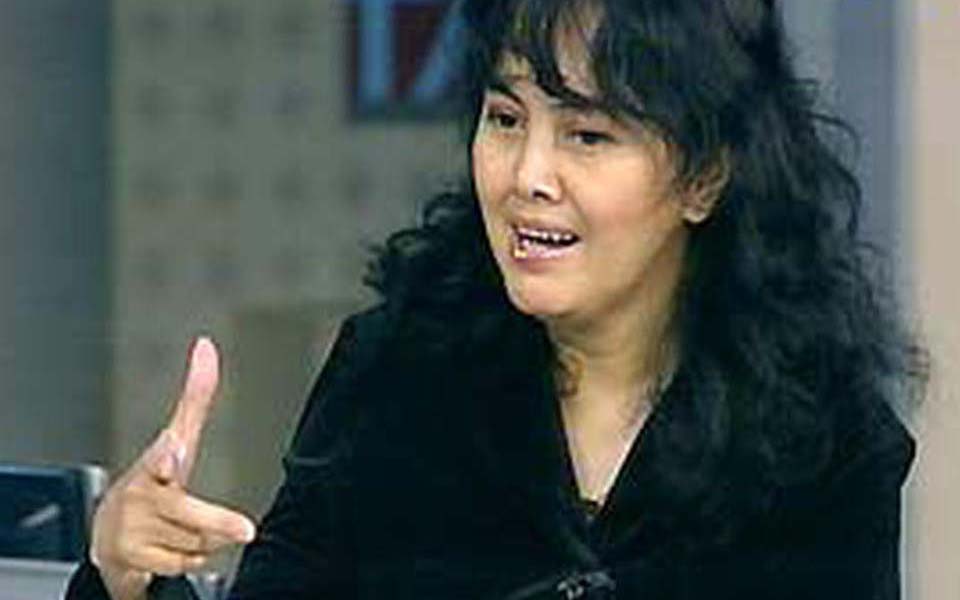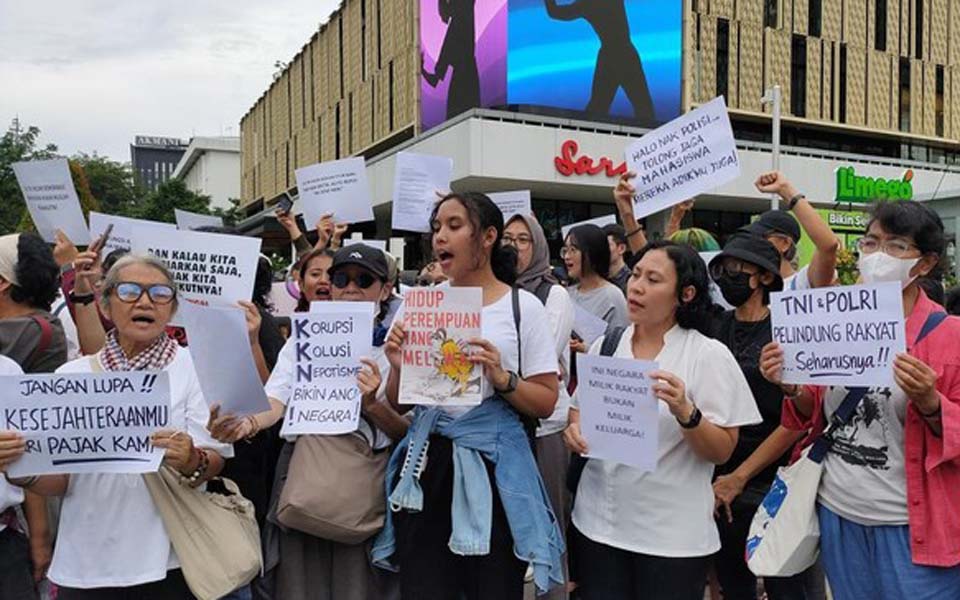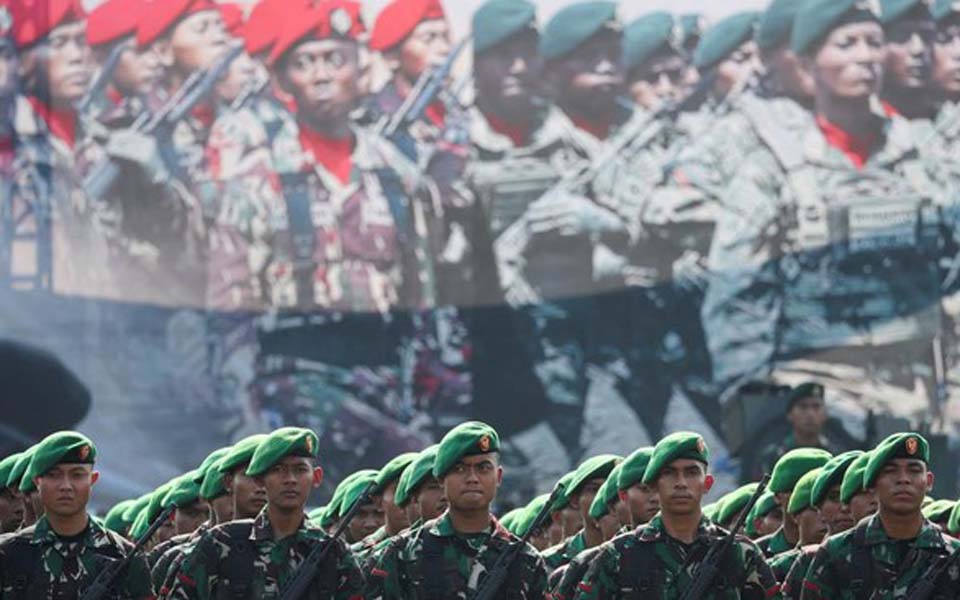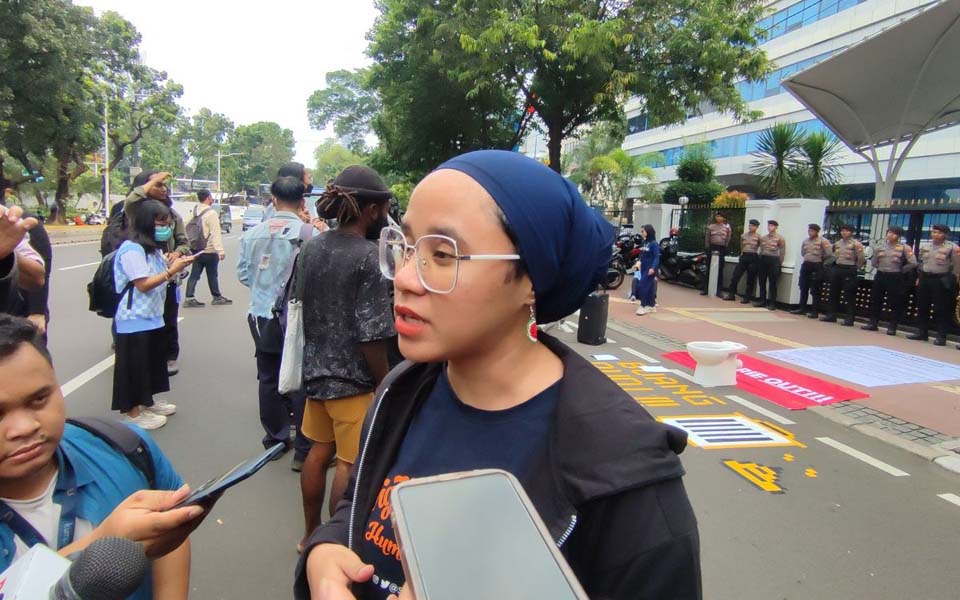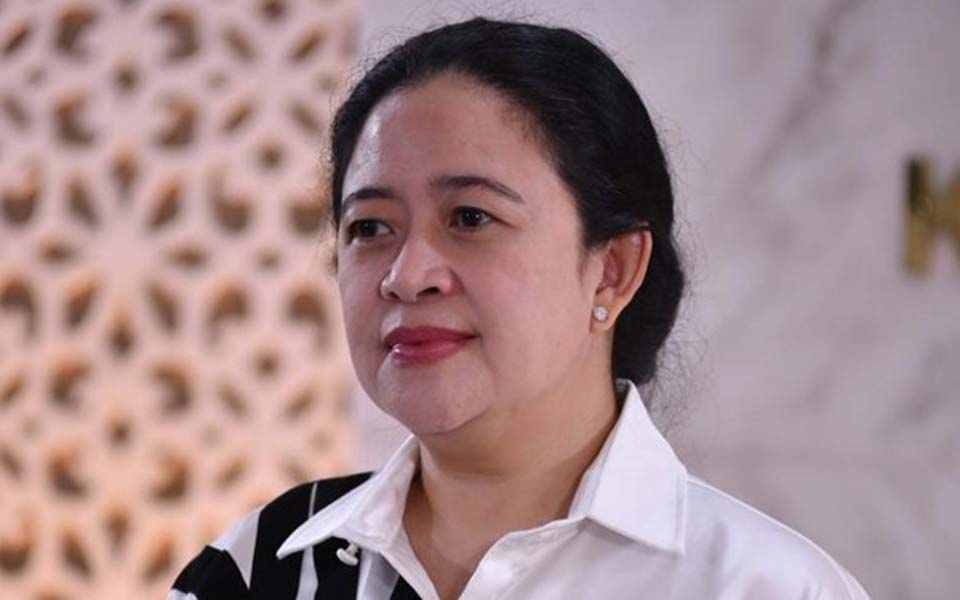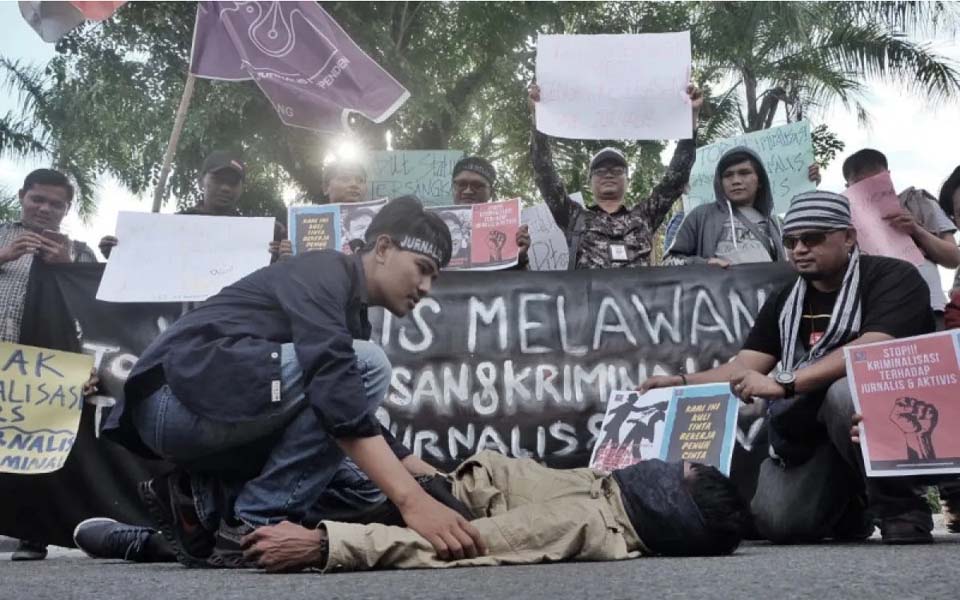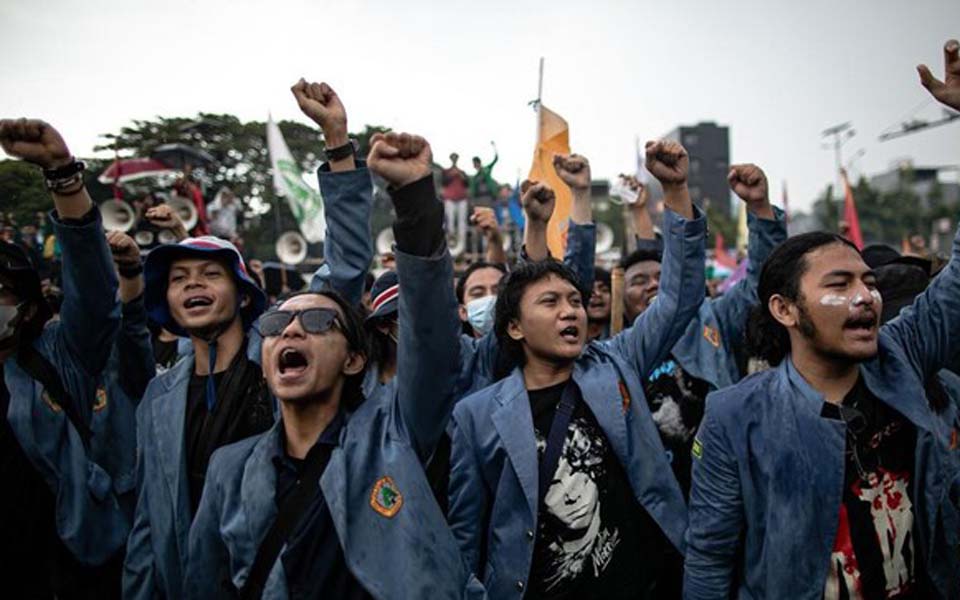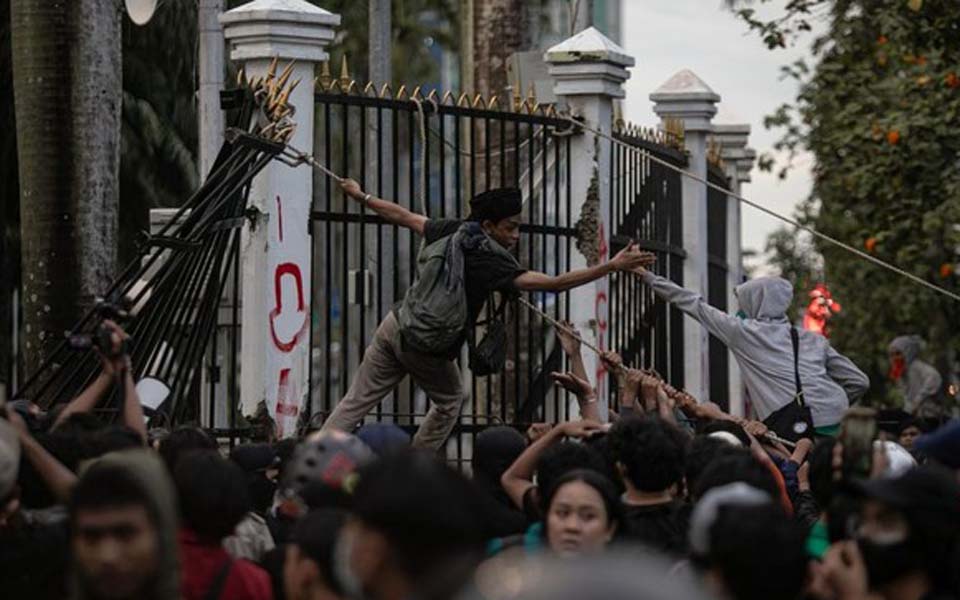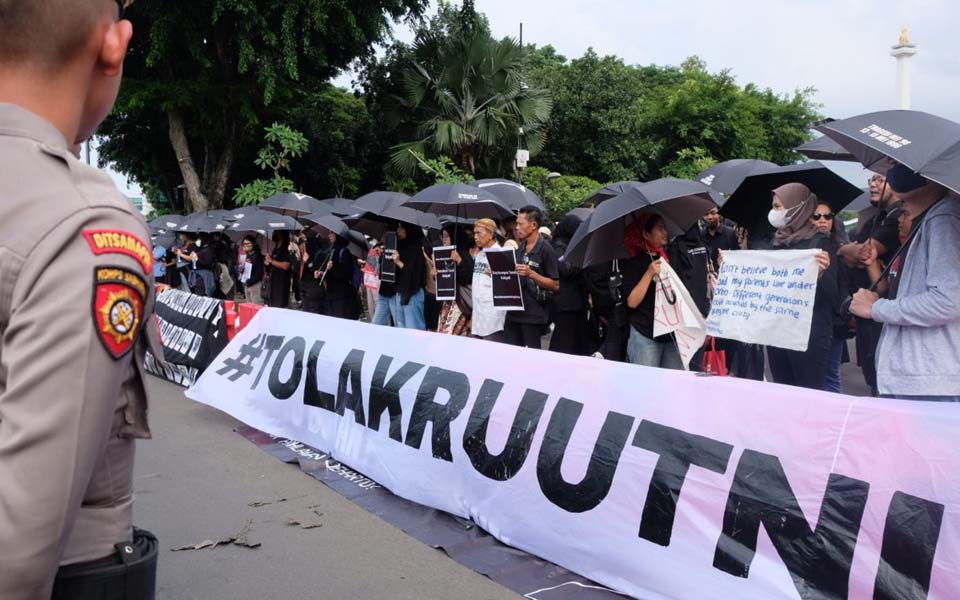Jakarta, Kompas – A number of non-government organisations (NGOs) and students from the pro-democracy movement have rejected the planned deliberation of the draft law on the Indonesian National Armed Forces (RUU TNI) by the People’s Representative Assembly (DPR). Aside from procedural flaws, they believe that the draft law has the potential to obstruct the process of democratic reform.
These issues was raised in a meeting of pro-democracy activists on the draft law which was held at the offices of the Institute of Development and Human Resource Studies (Lakpesdam) which is affiliated with the Islamic mass organisation Nahdlatul Ulama (NU) on Friday July 23. The main agenda item was the discussion of an action plan to respond to DPR’s deliberation of the draft law which will take place between August 2 and September 30.
The discussion, which was chaired by women’s activist Yenny Rosa Damayanti, was attended by representatives from a number of NGOs such as Lakpesdam NU, the Propatria think tank, Indonesian Human Rights Watch (Imparsial), the Indonesian Women’s Coalition (Koalisi Perempuan Indonesia, KPI), the Indonesian Farmers Association (Asosiasi Petani Indonesia, API) and the Alliance of Independent Journalists (AJI). Representatives from student groups who attended included the Indonesian Islamic Student Movement (Pergerakan Mahasiswa Islam Indonesia, PMMI), the Republic of Indonesian Catholic Students Association (Perhimpunan Mahasiswa Katolik Republik Indonesia, PMKRI), the Indonesian Hindu Student Association (Kerukunan Mahasiswa Hindu Dharma Indonesia, KMHDI), the National Student League for Democracy (Liga Mahasiswa Nasional untuk Demokrasi, LMND) and the National Students Forum (Forum Mahasiswa Nasional, FMN).
“The deliberation of the RRU TNI must be rejected because it has the potential to bring back the dual [social and political] function of ABRI [the Indonesian Armed Forces, now called TNI] like before”, said Yenny.
Likewise, Impartial’s operational director, Rusdi Marpaung, said that the draft law must be rejected for six reasons, including that it will make the TNI’s operational and territorial military commands(1) permanent and give them a legal manatee under law. Aside from this the draft law opens up the possibility of a return to the assignment of TNI officers to posts in the civilian bureaucracy.
Marpaung also questioned the support given by Tjahjo Kumolo, the leader of the Indonesian Democratic Party of Struggle fraction in the DPR, for the deliberations of the draft law. “When the fact is that in the lead up to the first round of the presidential election there were many actions rejecting militarism”, he said.
Propatria’s executive director, T. Hari Prihatono, said that in his view the strong desire on the part of the government and the DPR to accelerate the deliberations and complete the draft law indicates the existence of “political dishonesty”. Moreover it explicitly ignores the principles of democracy which require the opening up of space for public participation. This has the potential to threaten the future process of democratic reform.
Withdraw the RUU TNI
Prihatono said that in his view the draft law not only fails to reflect the existence of bias towards military officers, but will provide further political benefits to the TNI leadership. Prihatono therefore urged the government to withdraw the draft law from the DPR saying the government needs to form a new team to properly complete the draft law so that the outcome is both comprehensive and so that it can become a legal instrument which will support the democratic process.
The general chairperson of PMII’s executive board, Malik Haramain, highlighted the issue of the TNI’s territorial commands which are absolutely central in the draft law. “At the very least we must carry out a rationalisation of the territorial commands because the problem is that becomes complex when it is related to domestic conflicts. [Although] I think that especially in the case of Aceh the territorial commands are still necessary”, said Haramain.
Separately meanwhile, deputy presidential candidate K.H. Hasyim Muzadi has asked the different parties to first examine and study the draft law before signing it. “Which is true, will the draft law bring militarism back to life in Indonesia or merely reposition the military institutions so that they are more processional”, he said.
Muzadi added that if in the future the legislation indeed develops in to a militaristic state system then the matter must be immediately corrected and checked. “What we need at the moment is [to discuss] how to safeguard the respect and prestige of military institutions, because they are the institutions which have the duty to protect the severalty and status of the nation”, said Muzadi. (DWA/BUR)
Notes:
1. The TNI’s territorial command structure mandates the deployment of military command posts and detachments at all levels of the civil administration: provincial, district, sub- district and village. This structure provides the organisational framework for the TNI to act as a political security force at all levels of society.
[Translated by James Balowski.]





